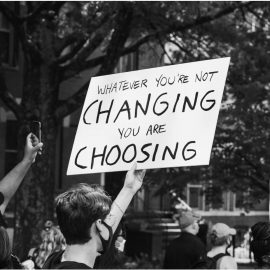
Is the global wealth gap inevitable? Is it possible that we can minimize—or even close—it?
Some countries have more wealth than others because of some combination of geographical differences, cultural differences, political differences, and exploitation. Various economic analysts have suggested some ways that nations and peoples can work to close the gap.
Keep reading to learn about three proposed global wealth gap solutions.
Global Wealth Gap Solutions
Some of these wealth gap solutions apply only to specific causes of international inequality and have been noted as such, while others can be applied more broadly. In particular, we’ll look at the following proposed global wealth gap solutions:
- Do nothing: International inequality isn’t a problem and therefore doesn’t need to be solved.
- Encourage development: Rich nations can solve inequality by using foreign policy to encourage economic development in poor nations.
- Mass redistribution of wealth: Nations and peoples around the world can solve inequality by redistributing wealth from the rich to the poor.
Solution #1: Do Nothing
Some argue international inequality is inevitable and acceptable. Thomas Sowell (Basic Economics) argues that because cultural, geographical, and political differences all contribute to international inequality, it’s too complex an issue to solve. He proposes nations focus on internal economic improvements rather than on addressing wealth disparities between each other.
Solution #2: Encourage Development
Richer nations can work to solve international inequality not necessarily by redistributing wealth directly, but by helping poorer nations help themselves—in other words, by encouraging economic development through foreign policy. They suggest doing this in a few different ways.
Encourage Development Through Trade
Paul Collier (The Bottom Billion) proposes richer nations eliminate protectionist and “fair trade” policies. When rich nations adopt protectionist policies to favor their own industries, they take business away from poorer countries. When richer nations adopt fair trade laws—laws that set artificially high prices on specific commodities from poor nations—they can make poorer countries dependent on those specific industries and prevent them from developing or diversifying their economies.
Encourage Development Through Foreign Aid
In addition, some authors propose that rich nations strategically use foreign aid to encourage development in poor nations. They suggest doing this in two main ways:
1) Improving access to services: Esther Duflo and Abhijit Banerjee’s Poor Economics suggests international financial institutions and charitable organizations can aid the poor by improving their access to information and essential services. Specifically, they argue that access to financial services—nonpredatory banking, lines of credit, and so on—can help people make better economic choices to escape poverty.
2) Targeting aid specifically: William Easterly (The White Man’s Burden) argues for a “bottom-up” model of foreign aid in which richer nations directly fund development projects designed by local community leaders of poor nations. This method avoids imposing unwanted or impractical projects onto poorer nations and is designed to bypass corrupt governments that might misuse foreign aid. For example, a richer nation might allow individual community leaders from a poor nation to plan and propose their own projects, which the rich nation would then fund directly.
Solution #3: Mass Redistribution of Wealth
Some authors argue that distributing wealth more equally along class lines will solve inequality both within and between nations.
Global Wealth Tax
Thomas Piketty’s Capital in the 21st Century argues wealth must be redistributed through a global progressive tax—in other words, a tax that’s higher the more wealth someone has. Money raised through this tax would then be redistributed to the poor. Piketty believes this tax must be global because if it only applies to certain nations, the rich will relocate their assets somewhere else to avoid it.
Revolution
Famously, philosopher and economist Karl Marx’s The Communist Manifesto supports using revolution to seize the wealth of the rich and abolish private property in favor of communal ownership. In such an instance, wealth would be shared collectively among everyone regardless of their nationality, erasing the global wealth gap.






